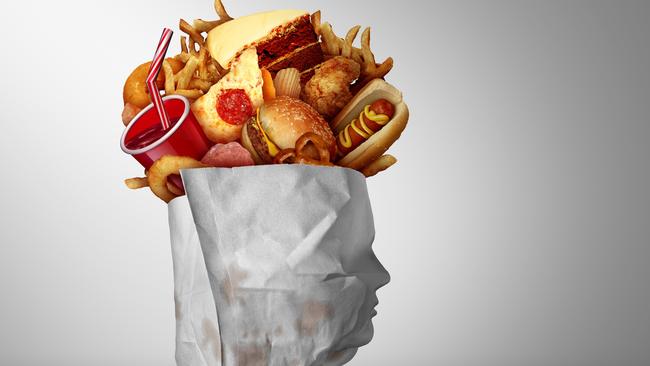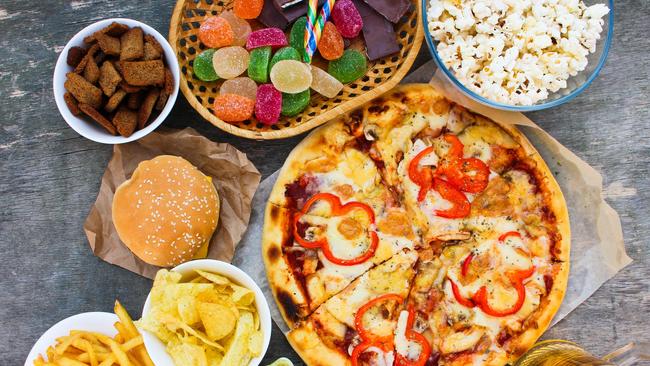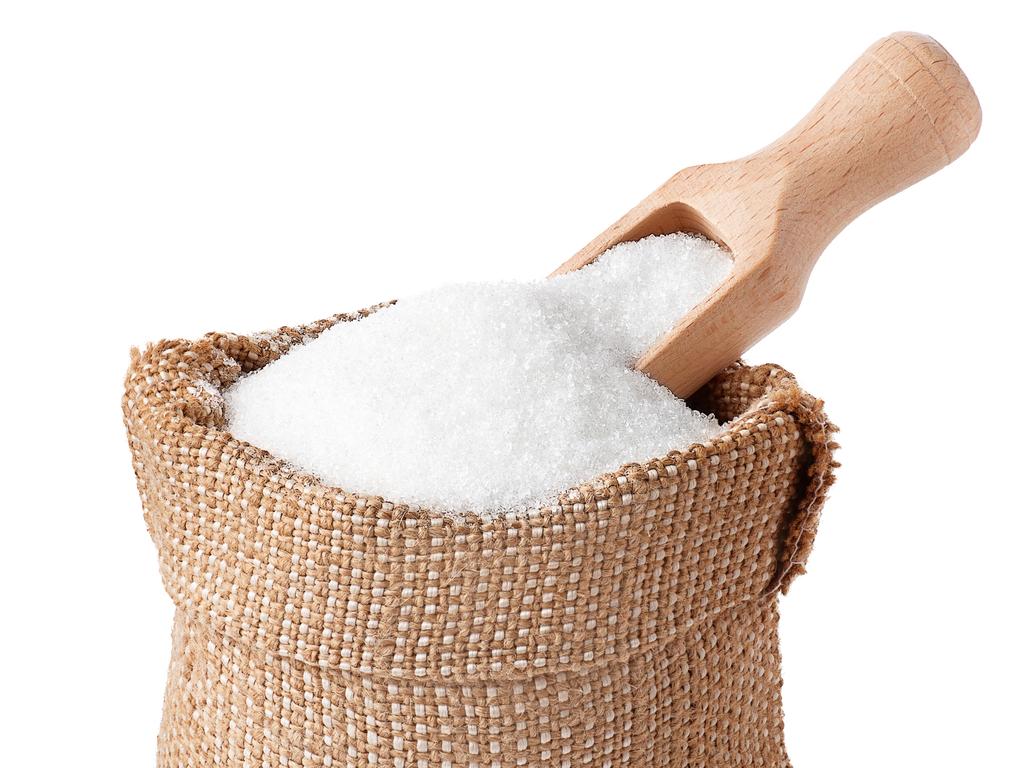Ultra-processed foods: 9 things you should never buy again
As another damning report blames eating these foods for a whole host of health issues, Peta Bee reveals the worst offenders.

We all know by now that consuming too much ultra-processed food (UPF) is bad for us. Eating a lot of pre-packaged foods with long lists of unfathomable ingredients has previously been linked to obesity and a host of health conditions, but in the latest damning report published in the BMJ it is blamed for raising the risk of 32 harmful health outcomes including cancer, diabetes, heart disease and depression. For the study, a team of international researchers led by scientists from Deakin University in Australia looked at data from previously published papers involving nearly ten million people. They found that those who regularly ate the most UPF were more at risk of conditions including type 2 diabetes and cancer, and were at a 21 per cent greater risk of dying young and a 50 per cent increased risk of dying from heart disease. A high consumption of UPF was also associated with more mental health disorders including a 22 per cent greater risk of depression, and about a 50 per cent increased risk of anxiety and poor sleep patterns. Among UK adults it has been estimated that 57 per cent of daily energy intake comes from UPF, with an even higher proportion seen in adolescents (66 per cent).

Compared with natural food, UPFs tend to be lower in nutrients, and can come packed with additives, colourings and preservatives, typically containing a minimum of five ingredients, some of which you might not even recognise. Dr Chris van Tulleken, author of Ultra-Processed People: Why Do We All Eat Stuff That Isn’t Food … and Why Can’t We Stop? (Cornerstone) and associate professor at UCL, says that if a food contains an artificial sweetener, it is, by definition, a UPF. “These sweeteners used to be limited to little sachets and diet soft drinks,” Van Tulleken says. “Now they’re in everything: breads, cereals, granola bars, ‘lite’ yoghurts, no-added-sugar ice cream, flavoured milk.” But which foods are the worst offenders? Here, we list nine that should probably be left off your shopping list for good:
Sugary breakfast cereals
Sweetened breakfast cereals have long been on the naughty list because of their added sugar and low fibre content, with research at Queen Mary University of London showing that some cereals comprise one third of their weight or more from sugar, or 8 teaspoons per 100g. To this we should now add any breakfast cereal that is artificially coloured, shaped or flavoured, all of which suggest industrial processing. Stick instead to minimally processed and sweetened cereals such as porridge oats.
Ready meals
It is estimated that 90 per cent of the UK population eats ready meals, with two out of five eating them once a week. This is despite concerns about these UPF meals being high in salt, sugar, fat and additives. Last year a study from the University of Aberdeen Rowett Institute published in the journal Public Health Nutrition found sugar levels in ready meals to be significantly higher than in equivalent home-cooked meals. Researchers at Newcastle University and the University of Cambridge reported in Appetite journal that supermarket ready meals also tend to be “high in saturated fat and salt”. Cook from scratch if you can.
Shop-made cakes and biscuits
Branded, non-freshly baked cakes and biscuits can be low on nutrients but packed with additives, flavourings and preservatives — to say nothing of the fat and sugar content. Research at Queen Mary University of London published in the BMJ Open journal found 97 per cent of shop-bought cakes and 74 per cent of biscuits would get a “red” (high) label for sugar content, meaning they contain more than 27g sugar per 100g.
Processed meat products
Still buying ready-made sausage rolls, ham and bacon? Processed meat makes up about 30 per cent of the average meat intake per person in the UK despite compelling evidence that eating less of it will reduce the risk of bowel cancer, the fourth most common form of cancer in the UK. Processing meat often involves adding nitrites that have been shown to produce chemicals that damage DNA and increase bowel cancer risk. Health chiefs in the UK recommend consuming no more than 70g of processed meat a day, but better still is to cut these products out.
Vegan burgers
Switching to a plant-based diet does not mean that all the foods on offer are wholesome. Vegan “meats” and meat products are often highly processed, with salt and flavourings added. A survey by the charity Action on Salt showed that 28 per cent of all vegan meat products surveyed contained worrying amounts of sodium. Unless fortified with nutrients, vegan meat alternatives also lack the iron and B vitamins found in meat.
Processed ‘plastic’ cheese
Cheese produced by traditional methods provides valuable protein, calcium and vitamins including A and B12 and, in the case of fermented varieties, can be good for gut health. However, ultra-processed cheese slices typically contain only about 60 per cent of real cheese mixed with emulsifying agents and often other ingredients such as vegetable oils, extra salt, food colouring and sugar. Be sure to check packaged cheese labels.
Flavoured corn chips
Some plain salted snacks can be classed as non-UPF. But many varieties of corn tortilla chips, for example, do not resemble natural corn in the slightest. “Some of these corn chips are more highly processed than others, having been cooked in refined oils with artificial flavours and preservatives added,” says the dietitian Rhiannon Lambert, author of The Science of Nutrition (DK). “A 100g serving can contain nearly 30g of fat, over one third of the maximum daily amount.” If it tastes salty or highly flavoured, it is best avoided. A survey by Action on Salt found that a 45g bag of even a “healthy” brand of corn chips can provide 1.3g salt, more than a fifth of the maximum recommended daily intake.
Flavoured yoghurts
They may sound healthy but these products are often so intensively altered and refined that they no longer resemble natural yoghurt. Last year a survey by the Food Foundation found that 53 per cent of yoghurts on sale contain four cubes or more of sugar per pot — the daily sugar allowance for children aged four to six is five cubes. Even some plain yoghurts veer into UPF territory if they contain thickeners such as pectin. So a good rule of thumb is that the further removed from natural yoghurt a product is in terms of taste and appearance, the more it is best left on the shelf.
Fizzy drinks
Lambert says that nearly a quarter of the sugar in our diets comes from sweet drinks, including squashes, cordials and fizzy drinks. Where the last fall down further is in other ingredients they contain, none of which contains much in the form of nutrients. Diet versions of fizzy drinks such as cola are equally ultra-processed, Van Tulleken points out. “As well as the sweetener Acesulfame K, caffeine, flavouring and colouring, it contains phosphoric acid, which rots teeth and leaches the minerals out of our bones,” he says. “Whether or not it’s a tiny bit better or worse than full-sugar [cola] is moot — they’re both terrible for your body.”


